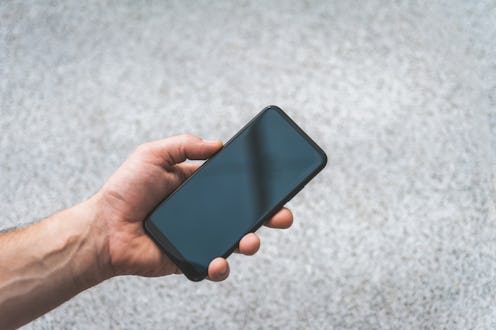Life
This Might Seriously Mess Up Your Phone

Our smartphones are basically tiny computers, which is all kinds of awesome — except for the fact that, like computers, they're susceptible to viruses. Now, there's a new piece of Android malware called "Mazar" circulating in Denmark which can cause some serious problems with your phone. How serious, you're wondering? Well, in a nutshell, it can take over your administrative rights, which means it can do whatever the heck it wants: Make calls from your phone, read all your text messages (that's embarrassing), and even wipe your phone clean. The good news (I guess?) is that the malware takes hold of your device when you click on a strange link sent to your phone in a text message; so if you avoid doing that, you should be safe.
Here's how it works. When you click on the link in the text message, your phone begins downloading Tor. Tor stands for The Onion Router, and it basically masks your online identity so that if anyone tries to trace your activity back to you, they can't do so. The traffic is instead spread out amongst a number of different Tor servers, pretty much allowing you to surf the web anonymously. Tor is actually a non-profit organization that's into the research and development of online privacy, so it's pretty ironic that it's now being used for this dangerous malware.
Anyhoo, once Tor is installed, the malware is downloaded through it. Make sense? Now all this activity and traffic is masked by the power of Tor, keeping the source of the virus effectively hidden. So far, an estimated 100,000 have received the text message and link.
Aside from clicking the link, your phone also has to have certain settings applied — namely, you have to have the setting that only allows downloads from trusted sources turned off. If you have this setting turned on (which you should!), the malware can't be downloaded to your phone. Oddly enough, there's also one more setting that will protect you from Mazar: Having Russian as your default language.
Now, don't go changing your phone's language and getting all confused; so far, we haven't even seen any reported cases in the United States. Regardless, though, it's worth checking your privacy settings, particularly those concerning trusted downloads — and the best protection by far is just to refrain from clicking any links that look even remotely suspicious.
Images: Victor Prilepa/Moment/Getty Images; Giphy